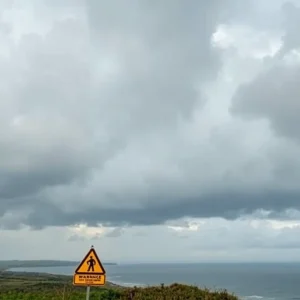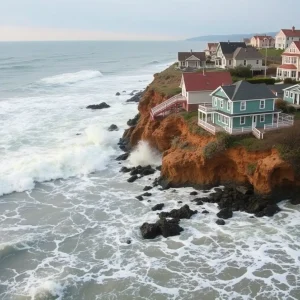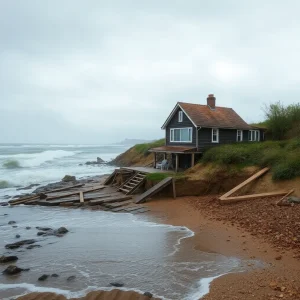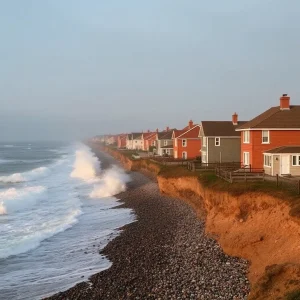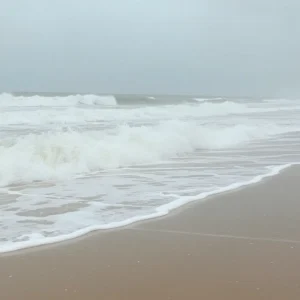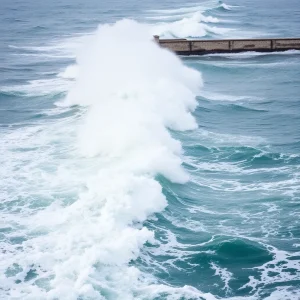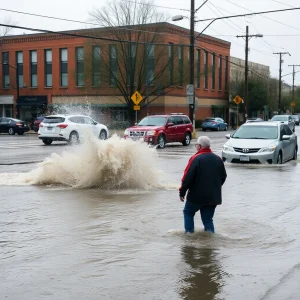Climate Change Effects: Outer Banks Homes Collapsing, Yet U.S Coastal Property Values Booming
Unsettling images of waterfront properties collapsing into the ocean are becoming alarmingly commonplace in North Carolina’s Outer Banks, underscoring the growing vulnerability many coastal regions face due to escalating sea levels. Yet, against the backdrop of imminent climate threats, U.S. coastal property values are surprisingly on the upswing. Record property price increases along the coast continue to surpass inland rates, signaling a counterintuitive real estate trend.
Outer Banks homes at risk
Just last week, a beachfront house in the Outer Banks valued at $650,000 crumbled; the sixth such occurrence within the region over the past four years. Countless homes are already suffering from the impacts of rising sea levels, with some houses literally underwater—yet, this has not dampened the appeal of coastal properties, the values of which continue to flourish.
Recent studies suggest that as many as 13 million American homes could be affected by the year 2100 due to escalated sea levels. Nevertheless, at present, waterfront views are proving pivotal in driving property values skyward. Coastal properties across the U.S. have even seen higher appreciation rates compared to their inland counterparts and are being sought after by wealthier owners.
Lawrence Yun, a leading economist at the National Association of Realtors, stresses that while buyers acknowledge the potential effects of climate change within the timeframe of a 30-year mortgage, the appeal of owning a waterfront property appears to take precedence.
Low-lying areas bear the brunt
Low-lying barrier islands like North Carolina’s Outer Banks are particularly exposed to Atlantic storms, becoming the fraught battlegrounds of rising sea levels and coastal erosion. Certain areas have reported a sea-level rise of seven inches over a few years. Subsequent to the recent house collapse, local authorities have closed off a portion of the road and emphasize the need for caution to visitors.
Coastal regions face grim realities
North Carolina isn’t the only place feeling the pressures of climate change. Coastal areas across the country are battling severe storms and heavier rainfall, further accelerating shoreline erosion. Property owners in Salisbury, Massachusetts, for instance, spent a staggering half a million dollars importing sand as a protective measure against coastal storms earlier this spring. In Dana Point, California, a $16 million mansion faces the imminent threat of crumbling into the Pacific.
Predictions indicate a sharp rise in average sea levels along the American coastline in the coming decades, escalating flooding threats for the 40% of the population residing in these zones. Unsurprisingly, insurance companies are retreating inland, leading to rising premiums for consumers – especially in states like Florida, where some major insurers have evacuated entirely.
Despite these realities, Florida has witnessed a surge in home values since the start of the pandemic, with average home prices in the southern part of the state overvalued by 35%.
The urgent need for effective management
The rising threat of climate-change-induced coastal erosion and flooding prompts an important question: Can more effective strategies be put in place over the coming decades to better manage coastal areas and ease this transition? “It’s not a matter of if, but when coastal communities approach complete inundation,” warns Duke University economics professor Martin Smith. As the ongoing climate crisis intensifies, societies bear the responsibility of exploring sustainable solutions to safeguard homes and communities against impending environmental threats.




